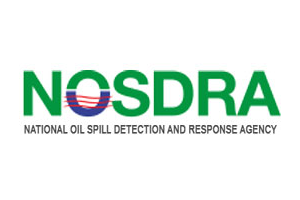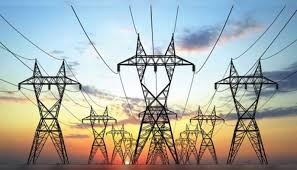


Shell launches unmanned vessel for undersea pipeline evaluation
…As stakeholders decry AI infiltration, potential unemployment
Stakeholders have called for caution in the deployment of artificial intelligence and technologies which may result in job losses in the Nigerian oil and gas sector.
The stakeholders made the call following Monday’s announcement by Shell Petroleum Development Company of Nigeria (SPDC) that it had introduced surface water drone for pipeline survey in its shallow water operations.
Shell had said that it had deployed an Uncrewed Surface Vessel (USV) for pipeline route survey in the Niger Delta.
The USV, a water surface drone with no human crew, can be used for underwater pipelines examination and integrity assessment among others.
SPDC announced the innovation, the first in Nigerian oilfields, in a statement by its Media Relations Manager, Mrs Abimbola Essien-Nelson.
According to the energy firm, the USV saves time and cost as well as reduces exposure to personnel and environment.
“Last month, the remotely operated USV conducted a pipeline route survey at Bonny for a total of 166 hours.
“It is the first deployment of an USV for a pipeline route survey in shallow water in Nigeria and the longest such single mission in the Shell Group,” Essien-Nelson said.
She quoted Mr Steve Keedwell, SPDC’s Chief Surveyor and Head of Offshore Survey Operations, as describing the deployment of the USV as the new face of survey in Nigeria.
According to the statement, on-site and remote operators deployed the USV.
“We recorded increased productivity and better data acquisition at the survey at Bonny.
“Deploying the USV reduced carbon dioxide emissions by 97 per cent because the vehicle is designed as diesel electric.
“The efficiency of data acquisition coupled with improved data quality whilst reducing personnel exposure to zero is transforming how we execute surveys,” she said.
She further said that SPDC partnered with different stakeholders such as Nigerian Upstream Petroleum Regulatory Commission, NNPC Upstream Investment Management Services and the Nigerian Content Development and Management Board on the initiative.
Others were the Nigerian Navy Hydrographic Office and the Nigerian Maritime Administration and Safety Agency.
She noted that in furtherance of its Nigerian content development programme, SPDC worked closely with a Nigerian vendor, Compass Survey Limited, which deployed the vessel with support from their foreign partners and Unmanned Survey Solutions, UK
Essien-Nelson also quoted SPDC’s General Manager, Nigerian Content Development, ‘Lanre Olawuyi, as saying the vendor was training on-site remote operators to build local capacity.
“This is an exciting chapter in our efforts to develop Nigerian content in the conduct of surveys,” Olawuyi said.
Olawuyi added that the innovation in the survey at Bonny was attracting interests from the oil and gas industry and beyond.
“We will continue to support Nigerian companies in the domestication of technology and innovations,” he said.
The statement allayed fears of job losses, saying the USV creates jobs at the remote control centre where data from the unmanned vessel is received and processed.
But an oil services expert, Mr Henry Itrechio noted that the introduction of technologies that cut off jobs should be used with caution due to the adverse social impact of job losses on the economy.
“Incursions of Artificial Intelligence ought to be handled with cautious optimism as machines cannot replace humans.
“Like in the case in point, the USV is better because the danger of having humans in undersea vessels is very high.
“The USV is not without its own drawbacks and its pilot deployment for pipeline surveillance in shallow waters should be further studied to ascertain the suitability for deep-sea operations,” he said.
He also noted that the disadvantages of using USVs for pipeline surveys in the oil industry include limitations in communication, navigation, payload capacity, range and speed when compared to undersea vehicles.
Also speaking, Dr Nnimmo Bassey, an environmental rights crusader, who welcomed the application of drone technology for underwater pipeline monitoring, argued that the claim of 97 percent reduction in carbon dioxide emissions was bogus and needed to be validated.
“The drones can be good for monitoring pipelines for defects, leakages, and corrosion or illegal activities.
“To say that they lead to 97 percent carbon dioxide emission reduction is a vacuous claim that can only be made by carbon speculators seeking profit rather than halting pollution.
“The drones whether subsea or above water cannot in any way eliminate human agency in halting harmful activities,” he said.



